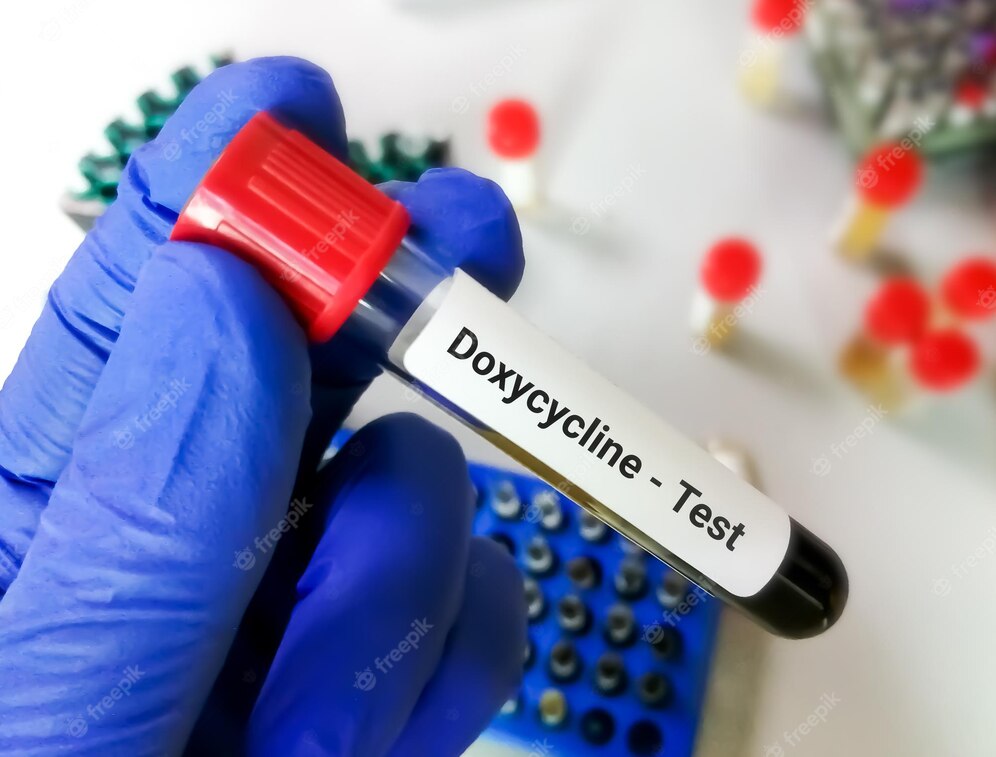Doxycycline for Acne Treatment: A Comprehensive Guide

Struggling with acne can be a relentless and disheartening journey. After trying countless creams, gels, and cleansers without success, I finally gained control over my acne by using doxycycline. In this guide, I'll provide you all the essential information on successful use of doxycycline as an effective treatment for your skin condition - benefiting from its powerful antibacterial properties while minimizing any possible side effects.
Introduction to Doxycycline for Acne Treatment
Doxycycline is a powerful antibiotic that works in an innovative way to improve your complexion. This versatile treatment method both works from the inside out and directly targets acne-causing bacteria, reducing inflammation and decreasing breakouts - all without irritating or drying out skin like other topical solutions can do!
How Doxycycline Works for Acne Treatment

Doxycycline targets the underlying cause of acne, P. acnes bacteria, providing a long-term solution to breakouts and inflammation caused by this common skin condition. By reducing their presence on the skin surface, doxycycline works effectively to prevent new blemishes from forming, while helping clear up existing outbreaks.
Doxycycline has the potential to treat beyond just bacteria of acne, as its anti-inflammatory abilities can relieve redness and swelling associated with more severe forms. Through this, it is often used for the treatment of cystic acne.
Doxycycline Hyclate vs. Doxycycline Monohydrate: Which is Better for Acne Treatment?
For those looking to treat their acne, two popular formulations of doxycycline exist: hyclate and monohydrate. While both are effective for treating blemishes, each has its own unique properties worth considering when making a decision on which is the best choice.
Doxycycline hyclate is the commonly-known formulation with a low risk of side effects. However, those seeking greater efficacy may find doxycycline monohydrate worth the additional cost due to its availability in tablet form only.
Your doctor can guide you towards the best doxycycline formulation for your needs, ensuring that all relevant factors are taken into account. They can help find a suitable option, so you feel comfortable and confident in any choice made.
Other Antibiotics Commonly Used for Acne Treatment
While doxycycline is a popular choice for treating acne, it is not the only antibiotic that can be effective. There are several other antibiotics commonly used for acne treatment, including:
- Azithromycin
- Erythromycin
- Minocycline
- Tetracycline
Each of these antibiotics works slightly differently, and may be more or less effective for different types of acne. Your doctor can help you determine which antibiotic is best for your individual needs.
How Long Does Doxycycline Take to Work for Acne?
Everyone's body and acne severity are unique, so the time to see improvement on doxycycline for acne treatment can vary. However, by understanding how your system responds to medications and properly managing inflammation in the skin, you may start seeing beneficial results from this medication sooner rather than later.
Consistency is key when it comes to tackling your acne. Although you may not see results overnight, taking doxycycline as prescribed can help yield long-term success in the war against blemishes over several months.
Common Side Effects of Doxycycline for Acne Treatment
Like all medications, doxycycline can cause side effects. Some of the most common side effects of doxycycline for acne treatment include:
- Nausea
- Diarrhea
- Vomiting
- Headache
- Dizziness
- Sun sensitivity
While these side effects can be uncomfortable, they are usually mild and go away on their own as your body adjusts to the medication. If you experience severe or persistent side effects, speak with your doctor.
How Long Do Doxycycline Side Effects Last?
Some side effects may be short-lived, while others could take longer to subside. However, in most cases relief should come within a week of taking the medicine.
Severe or long-lasting side effects should never be disregarded; speak to your health practitioner if this is the case. Adjusting dosages and finding alternatives could help relieve these discomforts, so it's critical for your wellbeing that you seek medical attention in such scenarios.
Best Practices for Taking Doxycycline for Acne Treatment
To get the most benefit from doxycycline for acne treatment, it is important to follow some best practices:
- Take doxycycline as prescribed by your doctor.
- Take doxycycline with a full glass of water to help prevent irritation of the esophagus.
- Do not lie down for at least 30 minutes after taking doxycycline to help prevent irritation of the esophagus.
- Avoid taking doxycycline with dairy products, antacids, or iron supplements, as these can reduce its effectiveness.
- Wear sunscreen and protective clothing while taking doxycycline, as it can increase your sensitivity to the sun.
When to Consider Doxycycline for Acne Treatment
Acne that doesn't respond to traditional treatments, and those plagued by severe, inflammatory cystic acne, can benefit from doxycycline. This medication can significantly improve your skin condition if used correctly.
Acne is a serious skin condition, and it's important to consult with your doctor to decide if doxycycline treatment would be the most effective option for you. Your physician will help determine what course of action best fits your individual needs.
Conclusion: Is Doxycycline a Good Option for Your Acne?
Doxycycline is an effective treatment for acne, targeting the bacteria that cause it and reducing inflammation. With minimal side effects, this medication helps curtail breakouts while minimizing any unpleasantness associated with them.
If you've been fighting acne with no victory in sight, doxycycline could be the key to unlocking clear skin. But before starting on this medication, talk to your doctor first - they'll know if it's right for you and how to take it. Used correctly, this drug has proven effective at removing those stubborn blemishes and restoring healthier-looking facial features!
For those struggling with acne, an effective treatment plan requires consistency and patience. Don't be discouraged if results don't show right away; a little dedication can go a long way towards achieving the clear skin you desire!









